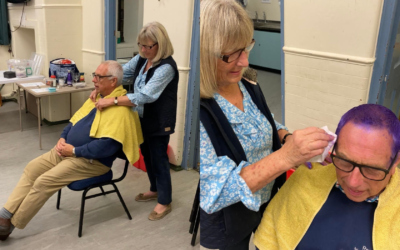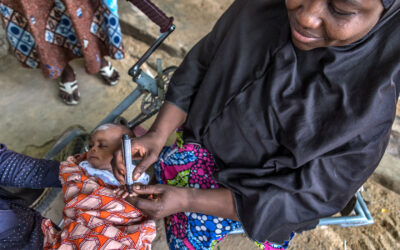Pakistan will be polio-free within the next couple of years because of new, tougher measures being introduced in the country.
That was the bold prediction of Mohammad Nafees Zakaria, the UK’s High Commissioner for Pakistan, who pointed out how Prime Minister, Imran Khan, has put polio eradication high on the Government’s agenda.
And with the support of the Army to provide security to vaccinators, he believed the end was in sight.
He said: “I think the way we have taken it as a serious challenge, the way we are implementing it, the way all the Government authorities are working together to this end, I am very sure it will not be very far, maybe a couple of years, until polio is gone from Pakistan.”
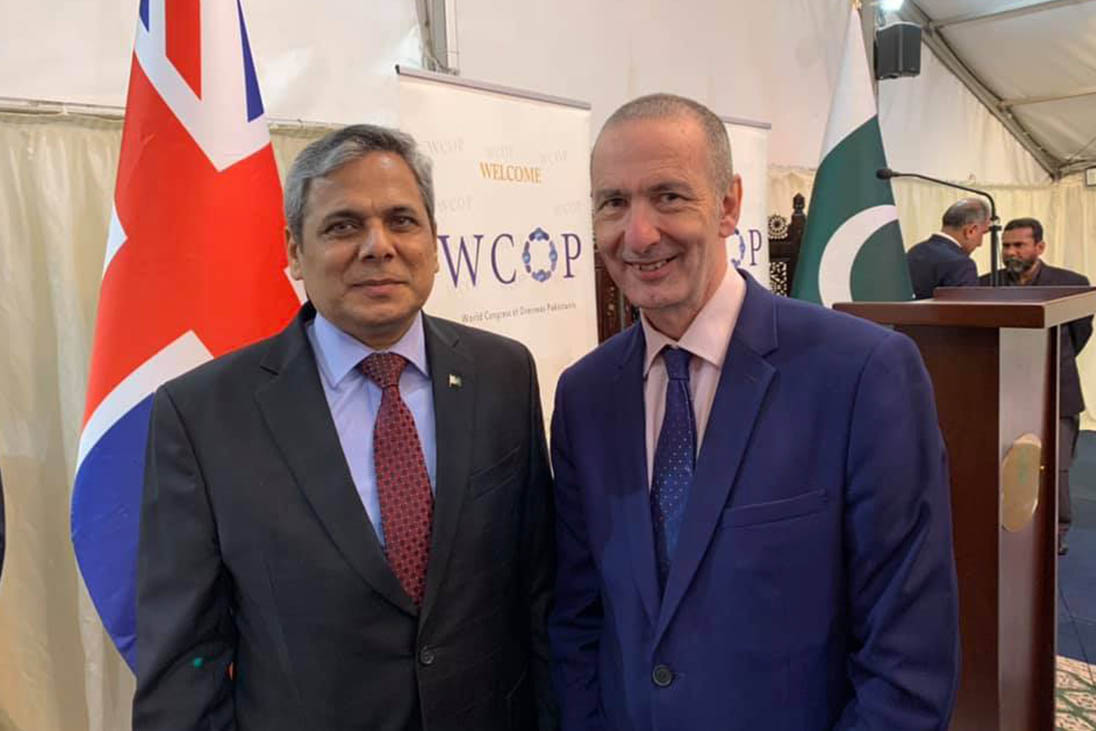

Mohammad Nafees Zakaria, the UK’s High Commissioner for Pakistan predicts, Pakistan will be polio-free within the next couple of years because of new, tougher measures being introduced in the country.
Pakistan and neighbouring Afghanistan remain the last bastions of the wild polio virus. In the 1990s, there were 20,000 cases of polio every year in Pakistan. Last year, there were 149.
Speaking ahead of a reception at the Pakistan High Commission in Belgravia, jointly organised with the World Congress of Overseas Pakistanis, the High Commissioner insisted there was a fresh resolve across his country’s Government to finish the job of delivering on polio eradication.
He said: “You can see the level of commitment towards polio eradication from the leadership in Pakistan. They are very resolute because this is directly impacting future generations.
“We don’t want people to carry the polio virus from Pakistan to another country.
“Our resolve to address this issue is not only by our own interests, but it is also in the interests of people from all around the world.”
The High Commissioner pointed to the economic impact of wiping out polio, quoting World Health Organisation statistics that it would save at least $40 billion to $50 billion, mostly in low income countries, with the humanitarian benefits sustained for future generations.
“A healthy nation is a wealthy nation,” added the High Commissioner.
“This is what we translate to with a future where there are more able-bodied people who are not disease-stricken. This will have an impact on economic activity across the globe.”
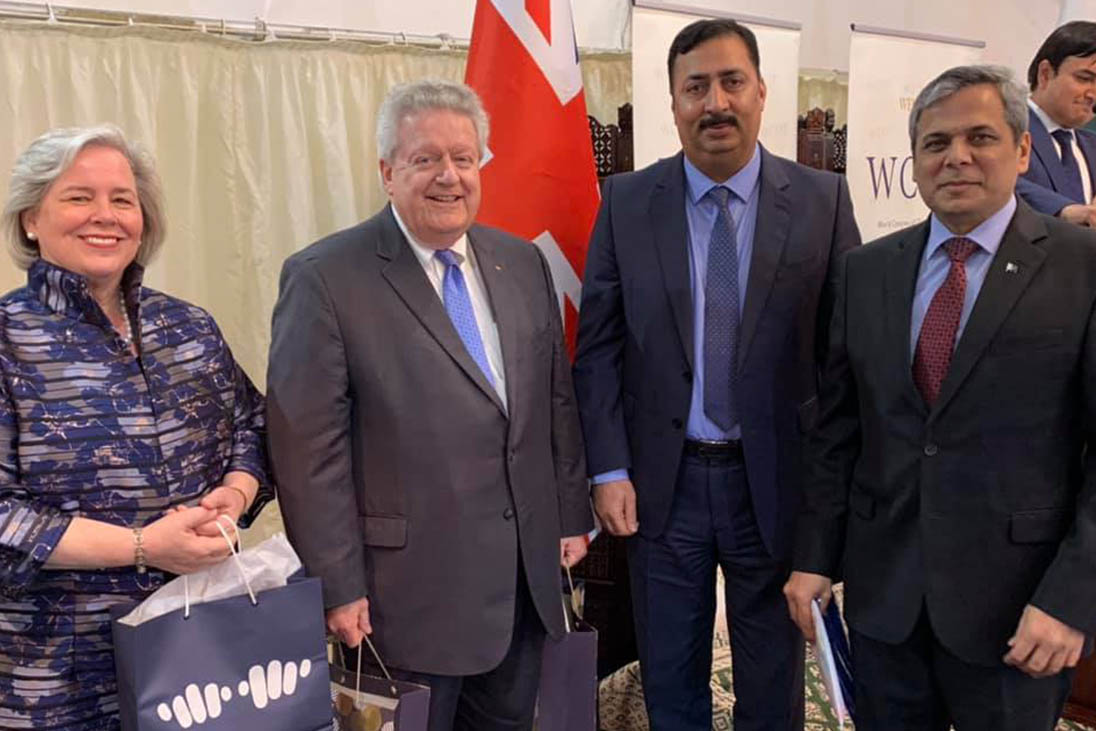

The High Commissioner pointed to the economic impact of wiping out polio, quoting World Health Organisation statistics that it would save at least $40 billion to $50 billion, mostly in low income countries, with the humanitarian benefits sustained for future generations.
With the spread of coronavirus or Covid-19 high on the agenda, the Pakistan diplomat pointed out that while we live in times of unthinkable technological advancement, creating a whole new set of opportunities for mankind to prosper, it has also created a range of other tricky issues.
He explained: “Rapidly expanding prosperity has allowed mass movement of individuals across national borders, yet these advantages have led to challenges in the form of the globalisation of diseases across a whole new range of geographical space.
“But the Government of Pakistan is fully alive to the challenges posed by this crippling disease, and the Government’s polio eradication programme has been fighting to end this disease from the country.
In the 1990s, there were 20,000 cases of polio every year in Pakistan. Last year, there were 149.”
“The programme is driven by up to 260,000 polio vaccinators, the biggest health network of its kind in the world.
“And an array of approaches and tools are being implemented by the Government of Pakistan to reach the finish line of zero polio cases in the country.
“These tools and approaches are outlined in the National Emergency Action Plan of Pakistan’s Polio Eradication Programme, with a set of objectives, targets, milestones and indicators that guide the programme to its goal of zero polio.
“And the programme’s senior officials report directly to the Prime Minister of Pakistan. This is where the commitment and seriousness of the issue is shown at the highest level.
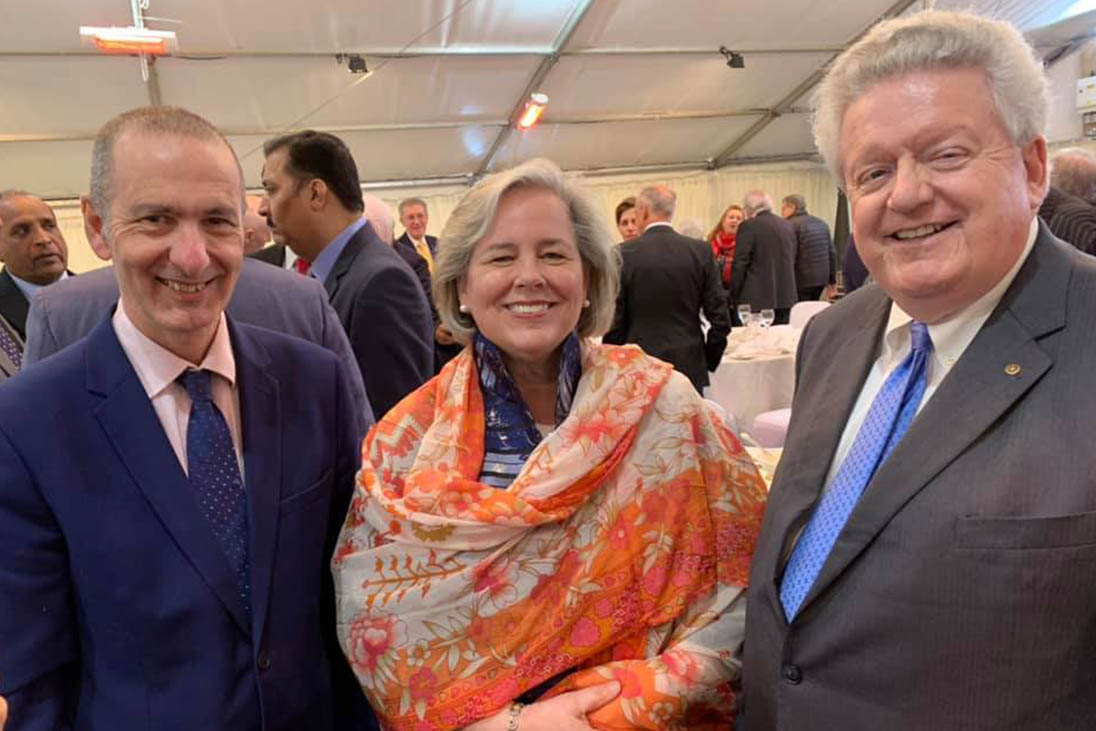

The Government is ensuring every child under five in Pakistan is vaccinated against polio in every door-to-door campaign.
“Through sustained vaccination drives, there has been a significant decline of polio cases in Pakistan. Sustained campaigning and vaccination is expected to bring down the numbers to zero, Inshallah.
“The Government is ensuring every child under five in Pakistan is vaccinated against polio in every door-to-door campaign.
“Given the frequent population movement between Pakistan and Afghanistan, the programme is also focussed on fully synchronising and co-ordinating its operation with the Afghan polio eradication programme.
“A full polio-free Pakistan and Afghanistan means a polio-free world.”
Aziz Memon, National Chair of Pakistan’s PolioPlus Committee, was among a number of dignitaries who attended the reception at the Pakistan High Commission. He had earlier explained that the two main challenges facing polio eradication in Pakistan were security and social media.
The Government is ensuring every child under five in Pakistan is vaccinated against polio in every door-to-door campaign.”
Some 192 polio vaccinators have been killed in Pakistan by fundamentalist gunmen in recent years, 75% of them women. The latest victims were two female health workers aged 23 and 27-years-old.
And Aziz, who is also a trustee of The Rotary Foundation, pointed to social media remaining an obstacle by allowing the spread of malicious, anti-polio propaganda. Facebook had intervened by shutting down around 500 accounts, he revealed.
However, the Pakistan polio chief agreed with the High Commissioner’s prediction that polio will be wiped out from a nation of 197 million – the world’s fifth most populous country – within the next few years.
Aziz said: “We have a challenge to overcome. We hope that by July 2020 we should be able to stop the transmission of the outbreak from last year.
“We then want to move forward so that, by 2023, we can fulfil the promise we made to the children of the world that they should live in a polio-free environment.”
His Excellency, Mohammed Nafees Zakaria, insisted that previous mistrust about the polio vaccinations from certain sections of Pakistan’s community was “misguided”.
We then want to move forward so that, by 2023, we can fulfil the promise we made to the children of the world that they should live in a polio-free environment.”
There was now a far greater awareness in the country of the need to vaccinate children, with the front line army of vaccinators reaching out to the remotest parts of a vast country spanning nearly 550,000 square miles.
He added: “Security is no more a problem because this has improved significantly. We have now secured the security for the vaccinators.
“Because of the Government’s resolve to make sure people have awareness and that the people comply with the Government of Pakistan to immunise their children, we now believe polio can be controlled.
“There is no reason why we should not be able to finish this job, Inshallah. We are nearly there.”
Rotary International President, Mark Maloney, told the Pakistan High Commissioner: “You are a great friend of Rotary and the Pakistani community are great friends as well.”
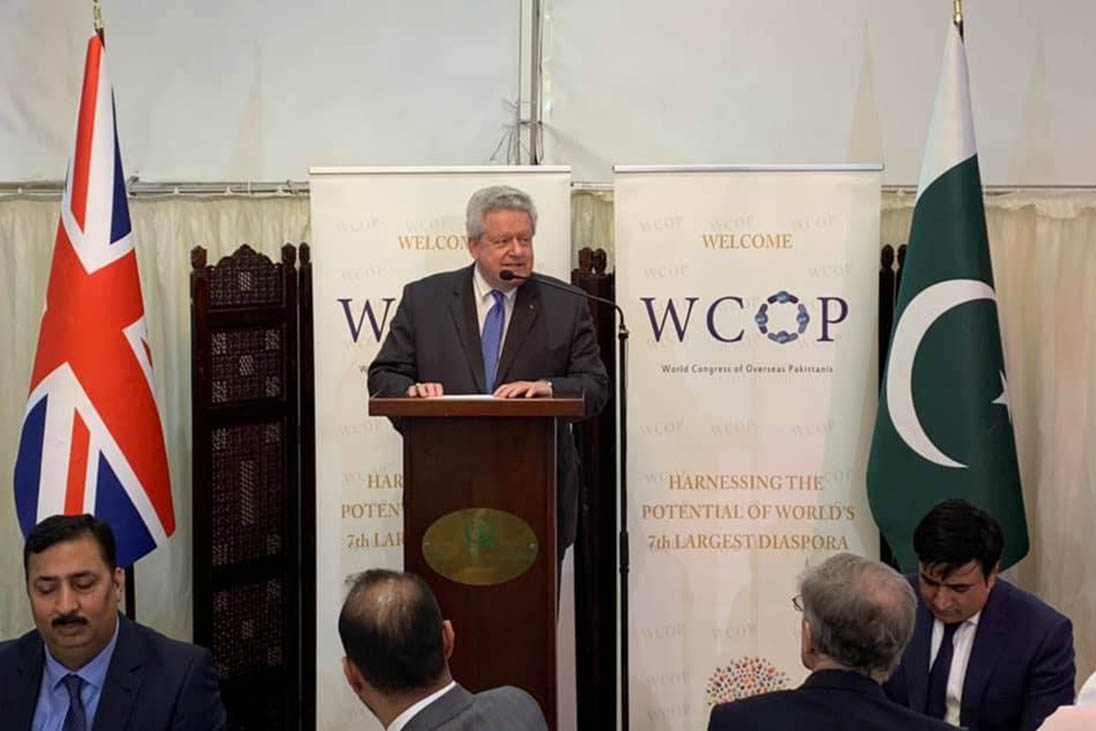

Rotary International President, Mark Maloney, told the Pakistan High Commissioner: “You are a great friend of Rotary and the Pakistani community are great friends as well.”
Remarking on the Pakistan Government’s financial support of $160 billion at the recent polio pledging event in Abu Dhabi, Mark said: “We thank the Pakistan Government for their support, as we thank the UK Government for their continuing support year after year.”
He added: “Until we see the last polio virus, we must continue to work to reach every single child with the polio vaccine. None of us know for sure when that last case of polio will be reported.
“Polio has been with humans since at least 1580 BC, but it is about to go away, and that is an incredible thought.
“We must maintain momentum and the focus on polio eradication, and fund-raising until we see the final case and complete the certification period.
Until we see the last polio virus, we must continue to work to reach every single child with the polio vaccine. None of us know for sure when that last case of polio will be reported.
“We have come so far since starting PolioPlus in 1985 when there were hundreds of thousands of cases of polio each year. And we have reduced the number of polio cases by 99.9% and that is more than a statistic.
“It means there are 19 million people walking freely today because of Rotary, governments of the world and our partners who have worked hard to eradicate polio.
“It means Type 2 and Type 3 polio have already been eradicated, leaving Type 1. More than 2.5 billion children have been immunised against polio, when in 1988 there were over 1,000 cases of polio per day in 125 countries.
“This number has been reduced to 175 cases in 2019. This was an uplift on the number of children afflicted compared to 2018, but we have seen this uplift before.
“In other countries we saw a great reduction in cases and thought we were almost there, and then there was this explosion of cases just before the final eradication occurred.
“So while we hate to see the numbers go up, it is not a case for alarm yet. We will redouble our resolve, but we must and we will persevere.”









